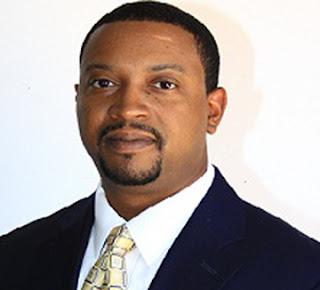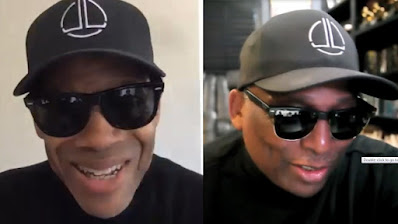Tallis Piaget on Changing the Face of the Inner City
Tallis Piaget on Changing the Face of the Inner City
Interviewed and written by Aaron Robinson - Editor
Creative writing has always been a passion for the gifted and talented writer Tallis Piaget. Not wanting to travel down a path of destruction at a younger age, Piaget picked up a pen and turned his anger into a positive, in hopes of making a difference in other people’s lives. Today, Piaget is the executive editor of the Insight2Incite Magazine, as well as co-host of the Insight Radio Show. I was granted the opportunity to have a conversation with Tallis Piaget as he shares some of his views on the inner-city epidemics and briefly discusses his new book “Black Boogiemen” that is making history. “You know what, that [making a difference] has always been in me. I’m a relater. I tend to empathize with people very easily. I always wanted to help people. I strive to be a great and righteous person,” expresses the newly author from St. Louis, Missouri as he speaks about the point in his life when he felt that he had to take a stand and make a difference.
“Black Boogiemen” is a powerful and critically acclaimed piece of literature, being that “Nobody likes it, everybody loves it.” It has opened up minds for many. This milestone piece of literature was influenced by Piaget’s frustration with the inner city community in St. Louis, Missouri. The book is a tale of a scientist by the name of Dr. Trenton Branch, who becomes extremely meager from his upbringing by his grandmother and the mean inner-city streets of St. Louis. Though the story is a tale, however, it’s a controversy and thoughtful piece of work that touches on all of the untold secrets of black America, revealing what can happen if the neighborhoods come together to take a stand for positive changes.
Sometimes many of our young males get off course and shortly become a statistic. Situations usually take them down a path of violence that leads to an unpleasant outcome. There are numerous solutions to getting our black youth on track, in hopes of molding them into becoming successful and responsible adults. “This is why I wrote the book like I did. Basically, there isn’t just one answer. You just can’t say, keep them in school; don’t let them go to jail. Eccentrically, we need to stop having unclaimed kids, in terms of having these boys and girls grow up without a father figure. If I can just name them all, I will say it all starts at home; we really need a home. From there, boys and girls really need to see more role models. When they step out their house, what do they see? They don’t see brothers like you or I. They see gangsters, they see brothers who are wannabe gangsters, and they see drug dealers and drug attics. They need some true mentors.”
While growing up in the inner-city, Piaget was able to experience some of the unfriendly things he saw that weren’t healthy to the environment. He continues to speak about getting our youth on track. “All in all, the bottom line, I will say we need to instill in our boys that regardless of what is going on, ultimately, you control your destiny. You can’t put blame on anyone else. That’s the thing they need to realize, to up accountability. Life isn’t fair, but that doesn’t determine what your life is going to be like. I will say that paramount is instilling in them, giving them a new mind, instilling in them a new mindset of their power, their potential, letting them know that they are some of the powerfulness people on the face of this earth,” well says Piaget.
The urban fashion trend, mainly in the inner-city is usually for a fashionable statement and identity purpose, especially for the youth. Last year, Trayvon Martin was shot and killed by a security guard who was supposed to have been threatened by him for wearing a hoodie. Piaget addresses the issue of fashion, whether if it’s helping or hurting our generation, as far as what they see in the media. “The fashion trend is in consolation. I remember being young. Clothes as are a way to express yourself when you’re young, because you really don’t know how to express yourself when you’re young; you really don’t know how to express what’s really on your mind. I do think the sagging trend is really detrimental to our inner-city youth. One thing you need to understand is the psychology of appearance. When you’re looking good, when you put on a nice suit when you go to church or a wedding or something like that, or when you’re in a tuxedo, it’s something about that look. It just changed the whole entire way you act. It has nothing to do with what you’re wearing, it’s how you’re wearing it,” articulately conveys Piaget who is not being thrilled when it comes to young men disrespecting themselves.
Piaget speaks about the message that he thinks adult males portray with their pants hanging below their waist, ultimately that influencing the young males. “This is another issue that blames adult black men. A lot of us because of our situation, we never grow up. So, we want to look like the youth. We want to sag and do all that kind of stuff because we never grew up. It is asinine. I think that comes from brothers who are not wanting to grow up, brothers who stay at home with their mothers or are living off of their girlfriends or something like that. One of my favorite scriptures in the bible, one being, when I was a child I thought and spoke like a child, when I became a man I put away those childish things. A lot of times, our adult black men at times refuse to become men.”
Some of the issues that have aroused in the black American community has caused organizers, community leaders and activists to come together to address various issues that may tend to set the community back. Fortunate to have an education, both self-educated and school educated, Piaget earned a degree in Biochemistry that provided him to work for one of the largest fortune 500, agricultural companies in the country. He speaks of what he believes the black American community is lacking in order to unite, love and to support one another’s visions and dreams. “As a whole…education. Education is so unimportant to us, really! Education is not extremely critical to us. Every last one of our kids should be coming home with straight A’s, or figuring out how to get straight A’s. They should love to learn.” Piaget gives an example of learning. “They should love to learn why this tree grows 2 feet, and this one grows 100 feet. What’s the difference? All of a sudden we had 9 planets and now we only have eight because they determined that Pluto is no longer a planet. Why? This is information; this is knowledge that builds you up.”
Piaget breaks down what he believes is the major thing about education that leaves the black American community behind everyone else. “Some college. Without us learning about psychology we are so easily manipulated. We don’t learn about the social science. In terms, people can use those social sciences against us, i.e. the system. It’s the system’s job to keep static quo because we don’t educate our self enough; we fall victim. When you talk to these brothers you can see geniuses. You can see geniuses within them, but without the education…you know what I mean? The more education you get, the less likely they are to fall to violence. The smarter you get, you don’t want to fight anybody. When you don’t have any intellect the first thing you want to do is ‘you want to fight me’? With that [education] you know what kind of person you are and you can work on it to improve it or to master it,” thoughtfully says Piaget.
Piaget shares words of encouragement with individuals who seem as if there is no hope for them in the future. “Nothing lasts forever. If you’re doing bad, if you’re going through hard times or through depression, it’s not going to last forever. Know that you will get that job, you will get that degree, your relationship will get better, time will progress and things will get better.”
For more information on Tallis Piaget visit www.tallis-piaget.com




Comments
Post a Comment